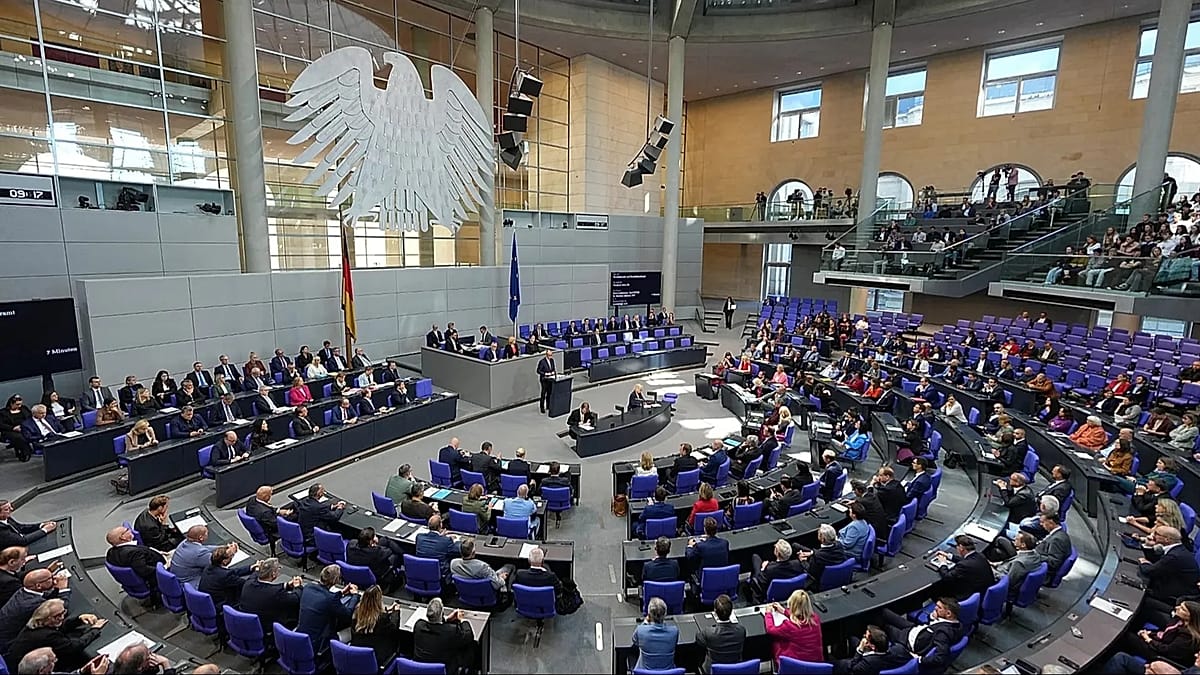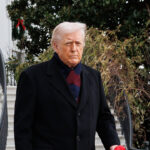German lawmakers accused the far-right party Alternative for Germany (AfD) of operating as a “sleeper cell loyal to Russia” in a Bundestag debate on Wednesday.
The AfD has been accused of submitting numerous inquiries to the federal government regarding the German military and critical infrastructure, and Christian Democratic Union (CDU) lawmaker Marc Heinrichmas said the AfD’s parliamentary group had submitted 47 such requests within a year.
Henrichmann, a member of the parliamentary management committee that oversees the intelligence services, said the AfD was being “led around the ring by the Kremlin.”
The debate followed calls for an investigation into the CDU/CSU and SPD’s ties to Russia.
Sonya Aichvede, deputy leader of the SPD, also slammed the AfD, describing it as a “stooge of Russian interests” and citing pro-Russian statements and visits to Russia.
AfD Thuringia branch chairman Björn Höcke has repeatedly praised Russia under President Vladimir Putin in the past, and AfD deputy chairman Markus Frohnmayr is reportedly planning a visit to Moscow in 2026.
Karl Lauterbach, a former health minister and member of the Social Democratic Party (SPD), called the allegations “treason” if proven true.
confidential information
The AfD survey, conducted in June, included more than 50 questions and sought information about the operational status of the Bundeswehr’s drone equipment and its strategy for “defending against hostile drones.”
The federal government classified multiple responses as “VS – For Official Use Only.” The government declined to answer more than 10 questions, saying that disclosing the information “risks revealing details about our interests worthy of protection and about the future activities and mission capabilities of the Bundeswehr.”
A few weeks ago, Thuringia’s interior minister, Georg Mayer, warned Handelsblatt: “We have been observing for some time with growing concern that the AfD is abusing its right to question the parliament specifically to investigate our country’s critical infrastructure.”
Concerns have centered on whether the information could benefit Russian President Vladimir Putin, whose drones and fighter jets have been increasingly accused of violating EU and NATO airspace in recent weeks.
Drones believed to be from Russia have paralyzed German airports on several occasions, believed to be the result of operations by so-called low-level operatives, who are approached and recruited through social media and often paid relatively small sums to carry out minor, low-risk tasks such as sabotage, surveillance, and arson.
Markus Frohnmeier, deputy leader of the AfD parliamentary group, dismissed the debate as a “shameful election gimmick” and argued that if the party posed a real security risk, “government-controlled security services” would “have thrown us in jail long ago.”
travel to russia
Frohnmayer, who is considered close to the Kremlin, recently abandoned plans to travel to Russia in the spring after criticism, telling the Schwäbische Zeitung newspaper: “I have no concrete travel plans at the moment.”
Public broadcaster ARD reported that AfD parliamentarians Steffen Kotlet and Rainer Rothfus will be in Sochi for several days on November 13 to attend the “BRICS-European International Symposium”, with Rothfus scheduled to speak.
He has repeatedly criticized Germany and the EU’s Russia policy on social media platform X, calling it “anti-Russian war propaganda.”
Parliamentary groups and political parties have the right to submit parliamentary questions seeking written government information on a subject matter. However, there has recently been growing concern that this tool could be misused to gather intelligence in support of foreign countries.
Thuringia’s interior minister, Georg Mayer, sounded the alarm in an interview with newspaper Handelsblatt, warning that the AfD’s questions about Germany’s infrastructure were “increasing in intensity and depth of detail.”








